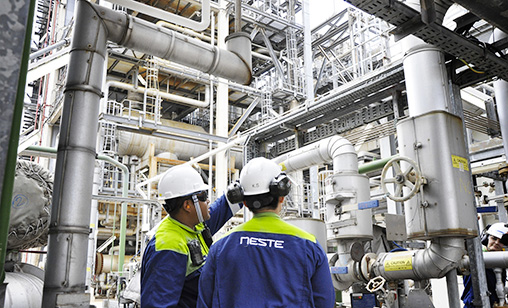Industry Insight Special Report
A manufacturer’s perspective on SAF production
February 1st 2024
Neste expects the global Sustainable Aviation Fuel market to reach 15 million tons by 2030, primarily driven by globally expanding policy frameworks, such as blending mandates. Read More » Voluntary demand from airlines and corporations with air travel and freight activities also could play an important complementary role in increasing SAF demand.
 |
However, such development is heavily dependent on policy support, a key factor for establishing a growing market for SAF and ramping up SAF production by creating the demand certainty necessary to attract investments in SAF production capacity.
At present, Asia-Pacific airlines are lagging behind their European and North American peers in SAF use. Also, governments in the region have not put in place policies to support SAF, but we do see encouraging developments, Neste told Orient Aviation.
For example, Japan is targeting 10% SAF use by 2030 and is considering a blending mandate as a tool to achieve that goal. Singapore is targeting the publication of a Blueprint for driving aviation decarbonization early this year, potentially including proposals on policy frameworks to support SAF use.
A longer forecast for SAF take up, to 2050, is unpredictable, but it is possible that it will follow a trajectory forecast to 2030. What is clear is we need to take action to combat climate change and reduce aviation emissions now.
There are challenges to overcome to increase production of SAF for commercial airlines flying in the region.
Neste said the main challenge to wider SAF adoption or higher percentage of SAF uptake for commercial airlines is cost.
SAF typically costs around 3 to 5 times more than conventional jet fuel and as fuel is a major cost factor for airlines it is not easy when operating in a highly competitive market to switch to SAF if their competitors are not required to do the same.
Additionally, current SAF production capacity is limited. We need to accelerate production to fully leverage its decarbonization potential. Investments in SAF production capacity are very capital intensive and need demand certainty to attract investments. For context, Neste’s investment in the recently completed Singapore refinery expansion was 1.6 billion euros.
This is where government policies can play a crucial role in creating demand certainty and a level playing field.
Sofia says:
July 16th 2024 02:05am